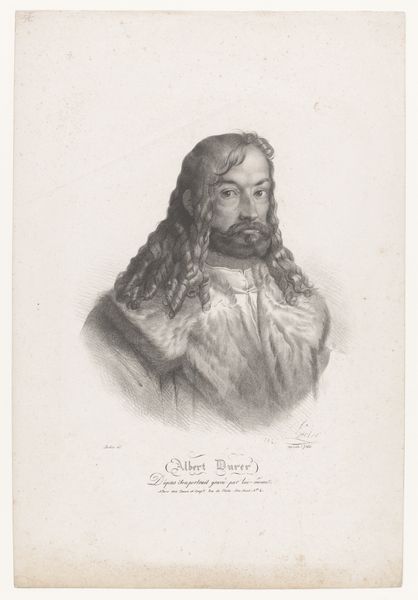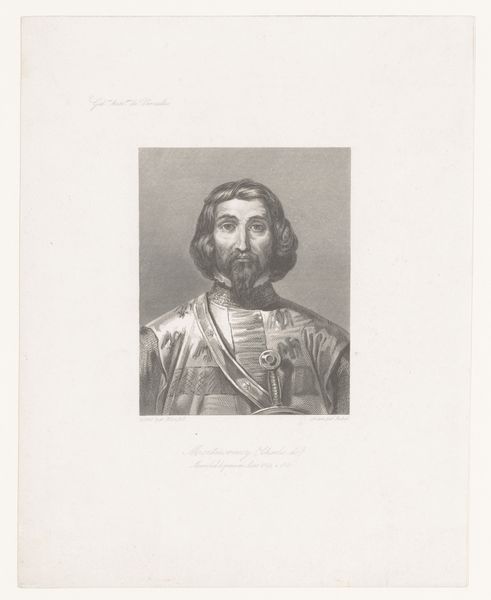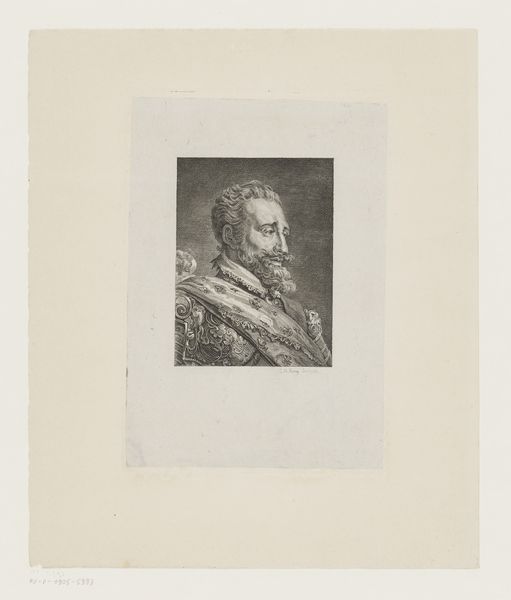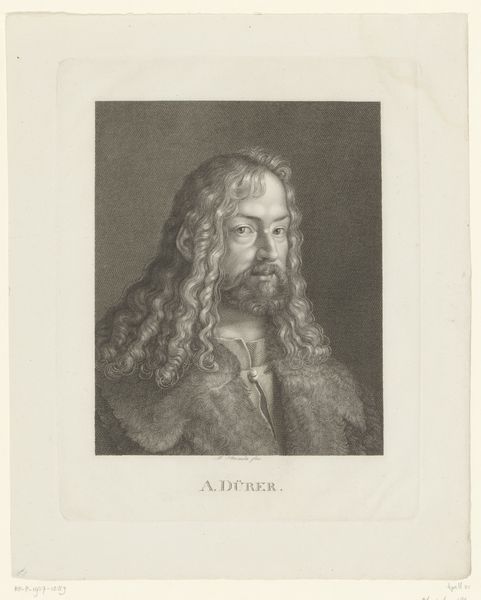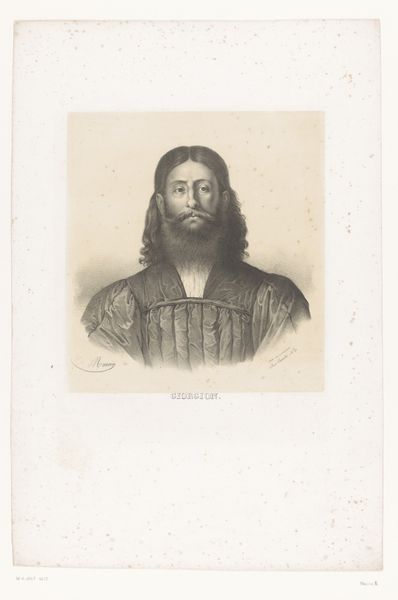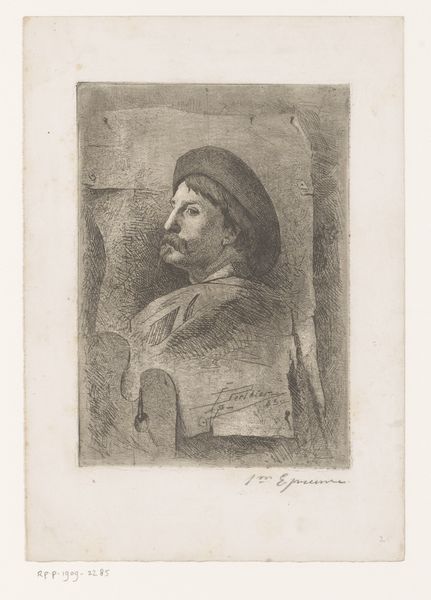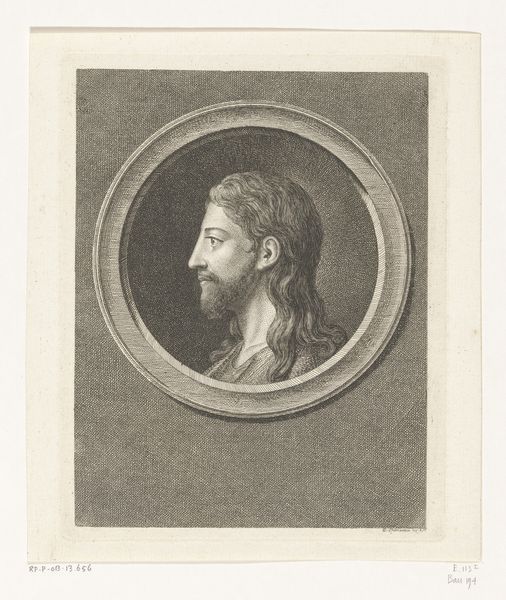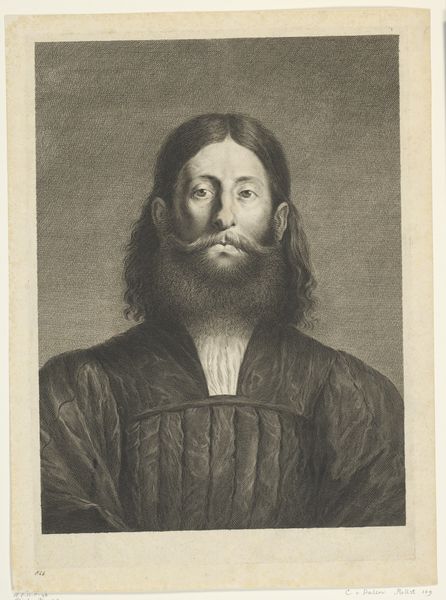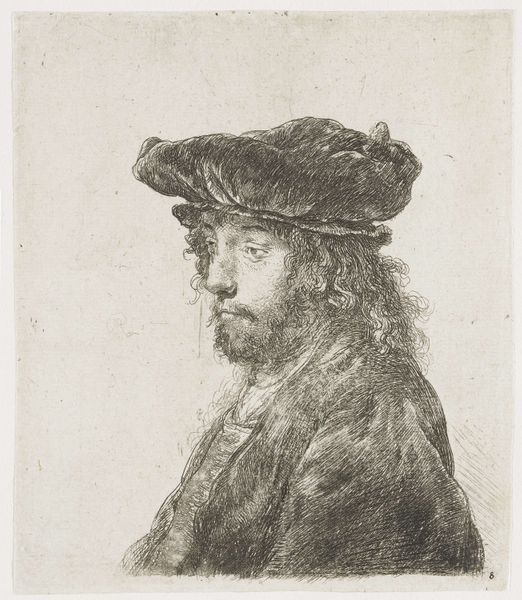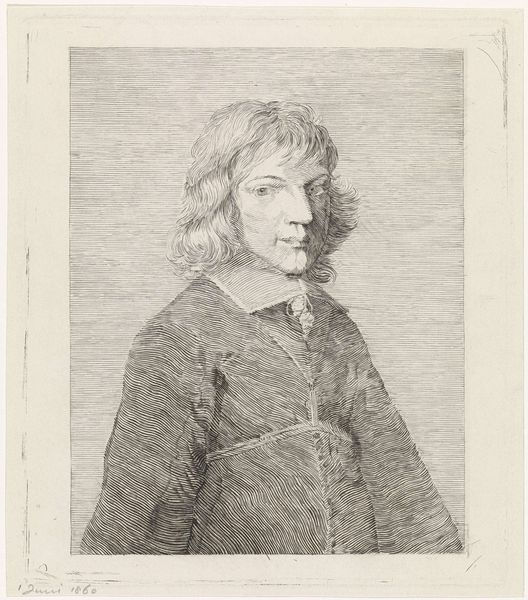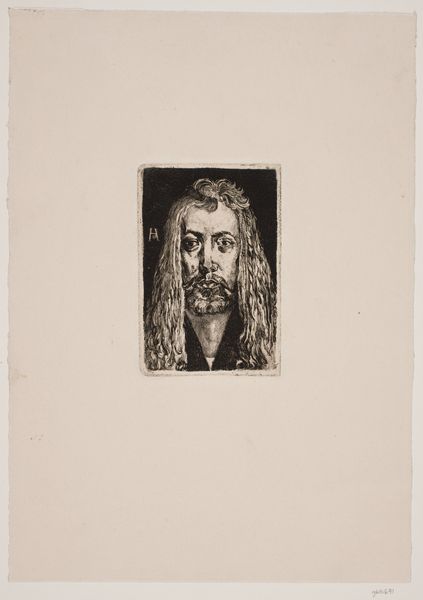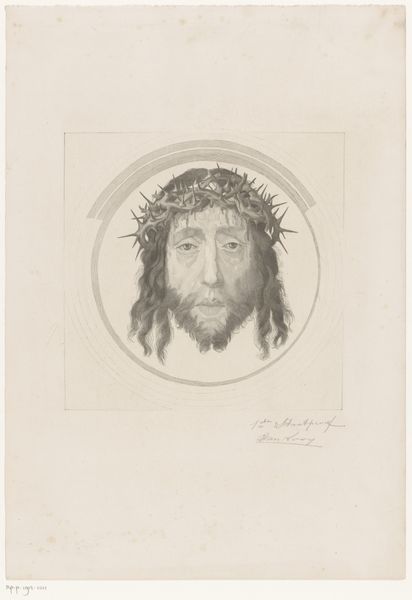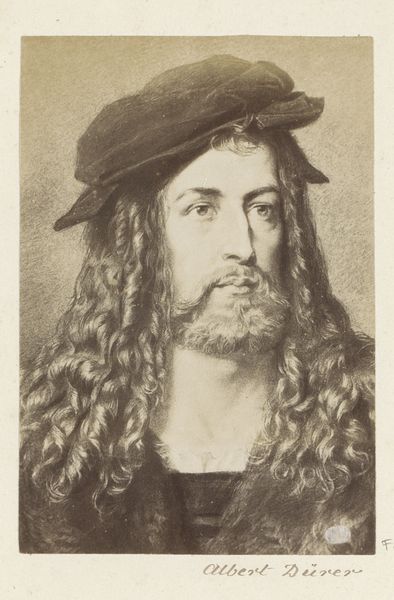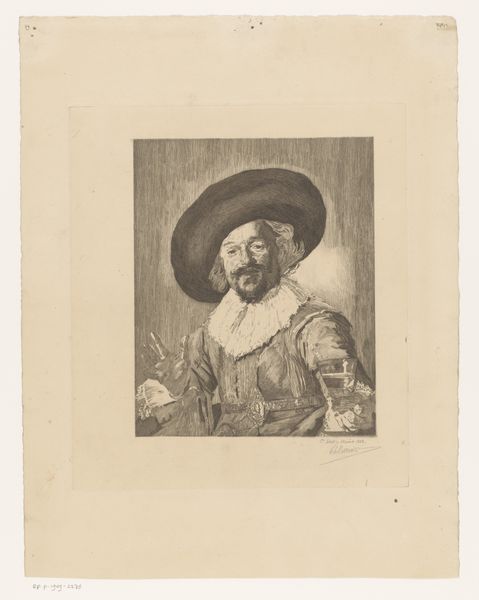
drawing, pencil
#
portrait
#
pencil drawn
#
drawing
#
pencil sketch
#
pencil drawing
#
romanticism
#
pencil
#
portrait drawing
#
pencil work
#
academic-art
Dimensions: height 352 mm, width 264 mm
Copyright: Rijks Museum: Open Domain
Editor: This is Jean-Baptiste Mauzaisse’s "Portrait of a Man with a Beard, Possibly a Painter," created in 1823, using pencil on paper. I'm struck by the subject's intense gaze and opulent fur collar – it feels like a deliberate statement of status. What stands out to you? Curator: Well, it is fascinating how portraiture like this one becomes a stage for constructing and reinforcing social identities. Consider the burgeoning bourgeoisie of the early 19th century; a portrait was not simply a likeness, but a declaration of self. Editor: So, this drawing is about more than just representing the sitter's physical features? Curator: Absolutely. It's about the performative aspect of identity, reflecting the values and aspirations of a particular social class. Notice how Mauzaisse uses pencil – a medium accessible to many – yet achieves an effect of considerable richness and detail. What message might that send? Editor: Maybe that this 'painter' – if it is a painter – is talented and of good taste without having to rely on more expensive materials like paint? Curator: Precisely! It positions artistic skill as an intrinsic virtue rather than a privilege conferred by wealth. We must remember that museums and galleries began to flourish in the 19th century; access to art, both as creator and consumer, was increasingly tied to questions of social mobility. This image, like the institution it resides in today, participated in that social narrative. What do you think? Editor: It's amazing how a simple pencil drawing can be so revealing of broader social trends. Thanks for helping me understand it better! Curator: My pleasure! It’s through these investigations that we come to better appreciate art as more than just aesthetically pleasing objects; they are cultural artifacts with real political consequence.
Comments
No comments
Be the first to comment and join the conversation on the ultimate creative platform.
